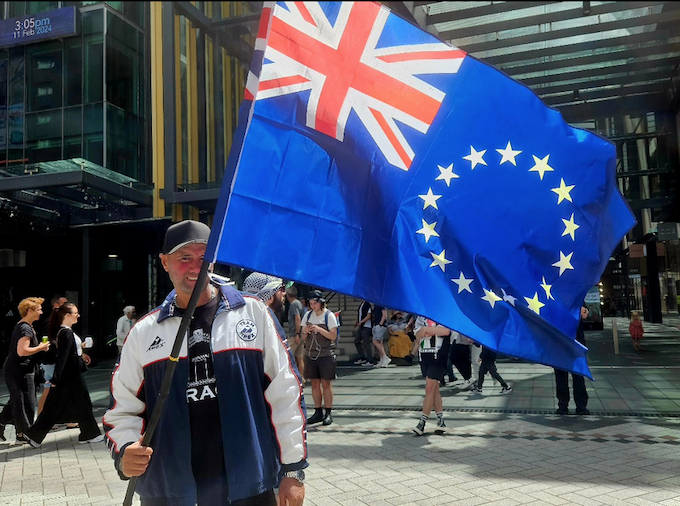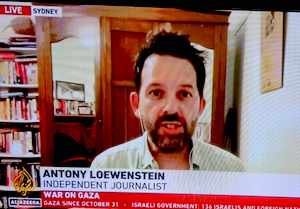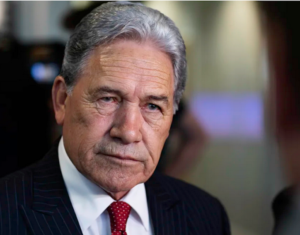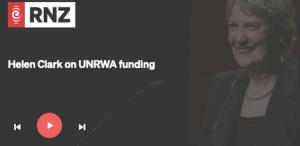ANALYSIS: By Karen Scott, University of Canterbury
In 2023, the world witnessed a sustained attack on the very foundations of the international legal order.
Russia, a permanent member of the United Nations Security Council, continued its illegal invasion in Ukraine. Israel’s response to the deadly October attack by Hamas exceeded its legitimate right to self-defence. And Venezuela threatened force against Guyana over an oil-rich area of disputed territory.
But is it all bad news for the international legal order?
There are six ongoing international court cases initiated by states or organisations seeking to clarify the law and hold other states to account on behalf of the international community.
These cases offer smaller countries, such as New Zealand, an opportunity to have a significant role in strengthening the international legal order and ensuring a pathway towards peace.
A departure from the legal norm?
Normally, cases are brought to the International Court of Justice (ICJ) when a state’s direct interests are impacted by the actions of another state.
However, six recent court cases reflect a significant departure from this tradition and mark an important development for international justice.
These cases argue the international community has a collective interest in certain issues. The focus of the cases range from Israel’s actions in Gaza (brought by South Africa) through to the responsibility of states to ensure the protection of the climate system (brought by the United Nations General Assembly).
Holding states accountable for genocide
Three of the six cases seek to hold states accountable for genocide using Article IX of the 1948 Genocide Convention. Put simply, Article IX says disputes between countries can be referred to the ICJ.
In late December, South Africa asked the court to introduce provisional measures — a form of international injunction — against Israel for genocidal acts in Gaza.
These proceedings build on the precedent set by a 2019 case brought by The Gambia against Myanmar for its treatment of the Rohingya people.
In 2022, the ICJ concluded it had jurisdiction to hear The Gambia’s case on the basis that all parties to the Genocide Convention have an interest in ensuring the prevention, suppression and punishment of genocide.
According to the ICJ, The Gambia did not need to demonstrate any special interest or injury to bring the proceedings and, in effect, was entitled to hold Myanmar to account for its treatment of the Rohingya people on behalf of the international community as a whole.
South Africa has made the same argument against Israel.
In the third case, Ukraine was successful in obtaining provisional measures calling on Russia to suspend military operations in Ukraine (a call which has been reiterated in several United Nations General Assembly resolutions).
While Ukraine is directly impacted by Russia’s actions, 32 states, including New Zealand, have also intervened. These countries have argued there is an international interest in the resolution of the conflict.
In November 2023, following the example of intervention in Ukraine v Russia, seven countries — Canada, Denmark, France, Germany, the Netherlands, the United Kingdom (jointly) and the Maldives — filed declarations of intervention in The Gambia v Myanmar, in support of The Gambia and the international community.
States can apply for permission to intervene in proceedings where they have an interest of a legal nature that may be affected by the decision in the case (in the case of the ICJ, under Article 62 of the ICJ Statute). That said, intervening in judicial proceedings in support of the legal order or international community more generally was relatively rare until 2023.
Climate change obligations under international law
But it is not just acts of genocide that have attracted wider international legal involvement.
In 2023, three proceedings seeking advisory opinions on the legal obligations of states in respect of climate change under international law have been introduced before the ICJ, the International Tribunal for the Law of the Sea and the Inter-American Court of Human Rights.
These cases can be similarly characterised as having been brought on behalf of the international community for the international community. New Zealand has intervened in the Law of the Sea case.
Collectively, these six cases comprise actions taken on behalf of the international community with the overarching purpose of strengthening the international legal order.
They demonstrate faith in and support for that legal order in the face of internal and external challenges, and constitute an important counter-narrative to the prevailing view that the international legal order is no longer robust.
Instituting proceedings does not guarantee a positive outcome. But it is worth noting that less than three years after the ICJ issued an advisory opinion condemning the United Kingdom’s continued occupation of the Chagos Archipelago, the UK is quietly negotiating with Mauritius for the return of the islands.
New Zealand’s support for the global legal order in 2024
The international legal order underpins New Zealand’s security and prosperity. New Zealand has a strong and internationally recognised track record of positive intervention in judicial proceedings in support of that order.
In 2012 New Zealand intervened in the case brought by Australia against Japan for whaling in the Antarctic. Following our contributions to cases before the ICJ and ITLOS in 2023, we are well placed to continue that intervention in future judicial proceedings.
Calls have already been made for New Zealand to intervene in South Africa v Israel. Contributing to this case and to The Gambia v Myanmar proceeding provides an important opportunity for New Zealand to make a proactive and substantive contribution to strengthening the international legal order.
Dr Karen Scott is professor in Law, University of Canterbury. This article is republished from The Conversation under a Creative Commons licence. Read the original article.
This post was originally published on Asia Pacific Report.











